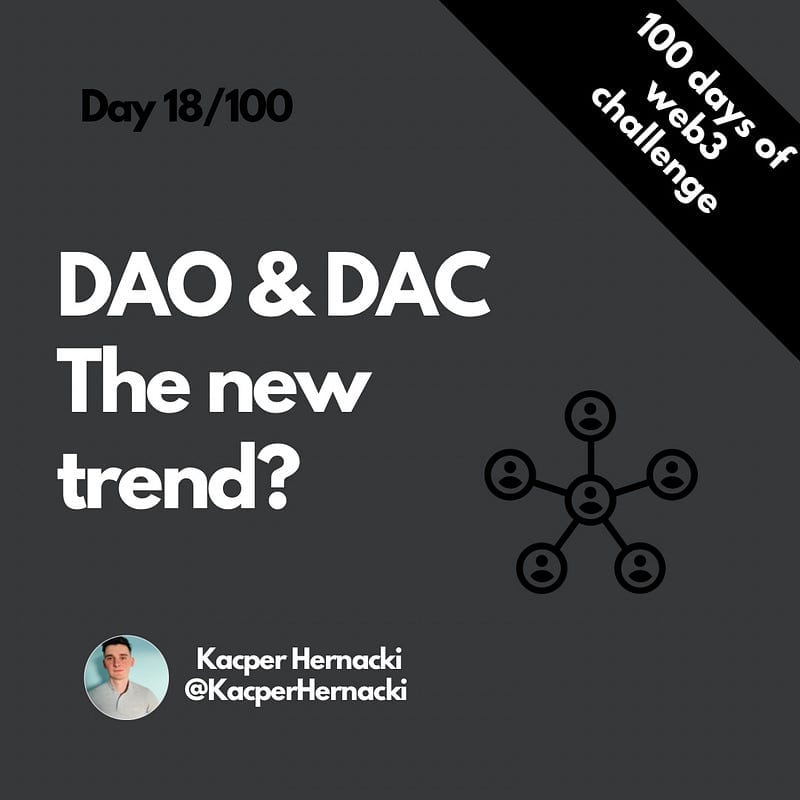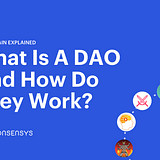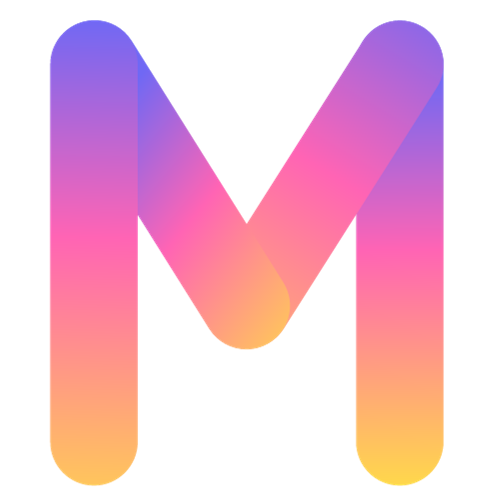DAO & DAC — the new trend?
Every web3 enthusiast should have met the terms DAO and DAC, probably without any deeper understanding. Personally I took that as some…

Every web3 enthusiast should have met the terms DAO and DAC, probably without any deeper understanding. Personally I took that as some crazy word and kept reading about blockchain, skipping that part.
This material is written for persons who did the same. DAO and DAC are extremely important in blockchain development. Practically, some of the entrepreneurs consider it as the most awesome use case of decentralization.
Agenda:
- Intro,
- What is DAO,
- What is DAC,
- How DAO works,
- How DAO is financed,
- Pros and cons,
- Conclusion.
What is DAO?
DAO stands for decentralized autonomous organizations. It differs from normal centralized organization by the way of functioning of the entire structure.
Every voting, decisions and proposals are maintained by smart contract.
Practically, DAO is governed entirely by its members. Avoiding centralization causes more power to every person in organization, what can have a huge impact on efficient and better future decisions, at any kind of level.
What is DAC?
DAC stands for decentralized autonomous corporation. It is usually called alternatively to DAO.
How DAO works?
Rules of DAO are always established by a core team of a community members. This establishment is achieved by creating accurate smart contracts and deploying them.
Smart contract exist on blockchain, so the rules attached there are transparent and visible. It is crucial to create clear rules in any organization, it has a great impact on a growth of the group and also potential new members.
More about smart contracts on my latest thread:
How DAO is financed?
DAO is receiving funds through token issuance, by which the established protocol sells tokens to raise funds and fill the DAO treasury.
In return for their fiat, token holders are given certain voting rights, usually proportional to their holdings. Once funding is completed, the DAO is ready for deployment.
Source:

What is worth to mention, when the code of smart contracts is deployed, there is no authority which can change the rules included there. All us proceeded by decentralized voting. Voting rights usually depends on the amount of holdings.
Pros and cons of DAO
Pros:
- autonomous structure,
- equal stakes,
- neutrality,
- accountability
Cons:
- concentration of voting power,
- time for transactions,
- regulatory implications,
- vulnerability of code.
Conclusion
Decentralization can be implemented practically everywhere, where is a community. It returns the true power of decisiveness to members of the group. DAO are found to be extremely efficient organizations, but still is needed time to prove that are better than centralized ones.




